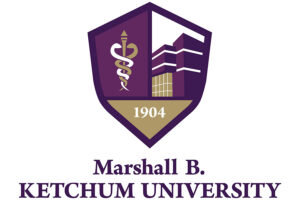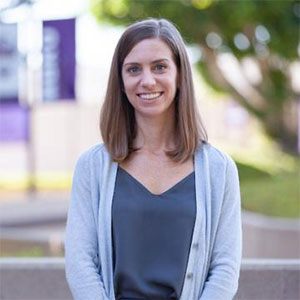
Marshall B. Ketchum University
(Editor’s note: INVISION Magazine has partnered with Marshall B. Ketchum University to examine the field of optometry. This column is the second in the continuing monthly series.)
As an optometrist and an educator at Marshall B. Ketchum University, I encounter many people who have chosen the rigorous and rewarding path of pursuing a career in optometry.
I am consistently amazed at the bright, curious, mindful, and compassionate individuals who represent the future of the optometric profession. Are you one of these people? Before you dive in, it is important to get a sense of what the work in optometry entails.
Here are five questions to ask yourself to help determine if this is the right career for you!
Embrace Change
Question No. 1: Am I a life-long learner?
Advertisement
Any career in health care will evolve and change over time.
As optometrists, we’re constantly learning more about how to best manage our patients’ vision and the different ocular diseases we encounter. Optometry is a particularly exciting profession because we always have new things to learn, products to work with, and technologies to help with our diagnoses and treatment plans.
People who embrace the learning opportunities that come along with a dynamic and continuously evolving field of practice are well-suited to becoming optometrists.
Making a Difference
Question No. 2: Do I Want to Make a Meaningful Impact on My Patients’ Lives and on My Community?
Optometry is a great profession for people who want to witness the positive impact they’re making in the lives of their patients and in their surrounding community.
In your role as an optometrist, you can provide glasses and contact lenses that improve vision and then witness the direct impact. Very few health care professions are able to enjoy the gratification of almost immediate results in terms of improving the health of their patients!
Advertisement
Optometric skills also allow you to provide services and give back to your community, from your neighborhood community to our shared global community.
Outside of regular practice, optometrists enrich their home community with services such as school vision screenings and collaborations with other health care providers to expand awareness of ocular and systemic health. Optometric mission trips help address the eyecare needs of individuals in parts of the world with limited access to health services.
More Than Meets the Eye
Question No. 3: Do I have an interest in being a part of health care outside of the eyes?
Eye exams evaluate more than just ocular health.
Regular eye exams are an important part of monitoring systemic conditions such as diabetes, hypertension, and autoimmune diseases. With this, some systemic diseases present first in the eyes – before a patient has any other symptoms.
Optometrists play an important role in identifying and managing ocular disease and correcting vision with glasses and contact lenses. However, we are also an important part of a patient’s overall health care team.
Advertisement
We help patients get the care they need for not only their eyes but their whole body.
There Will Be Math
Question No. 4: Am I looking for a way to connect my love of math and physics to a worthwhile and rewarding vocation?
We’ve all been there: sitting in class after class of organic chemistry as undergrads, wondering how we’re going to make something meaningful out of our interest in a difficult course of study.
If you have ever wanted to apply your knowledge of science, physics, and mathematics in a practical way, or a way that allows you to work with, interact with and serve other people, then optometry is a great choice for you.
There is an abundance of career options available to optometrists. An optometry degree prepares individuals to work in either a private practice or a commercial setting. You could go into academia and teach. Or you could pursue a research career, in either a commercial or industry setting, where you help develop new products and/or pharmaceuticals.
This career is more than just doing eye exams.
Jump Right In
Question No. 5: Do I want to be a part of a collaborative, expanding profession that will enable me to begin practicing soon after I’ve completed my training?
One of the factors unique to optometry is the flexibility you have upon completion of your degree.
For four years you focus on the eyes and learn about the systemic aspects that influence ocular health. After that, if you want to practice straight out of optometry school, you can. But if you’d like to specialize or continue honing a skill, you could to do a one or two-year residency. Either way, you can begin practicing soon after graduation.
This is exciting because the profession of optometry is growing immensely. There are schools opening across the country and state associations are pushing for expanded scope of practice to help us better tend to underserved communities, both in rural and urban areas.
I commonly tell my students – even the ones graduating this year – that in 10 years they’ll have learned new skillsets because of the expansion that’s happening in our profession.
It’s truly an honorable profession to witness and be a part of!
_____
About the author: Dr. Erin Rueff, OD, PhD, FAAO, is an assistant professor in the Southern California College of Optometry at Marshall B. Ketchum University with a focus in Cornea and Contact Lens Services. She enjoys teaching students in the clinic and classroom on contact lens and general optometry topics.

Erin Rueff, OD, PhD, FAAO, Marshall B. Ketchum University
Her clinical interests include multifocals, gas permeable and scleral contact lenses, keratoconus, and dry eye. Dr. Rueff is a Fellow of the American Academy of Optometry.
Dr. Rueff received her Doctor of Optometry degree from The Ohio State University (OSU) College of Optometry after completing her undergraduate work at Purdue University. Upon graduation, she completed the Cornea and Contact Lens Advanced Practice Fellowship at OSU. After fellowship, Dr. Rueff continued at OSU as a clinical instructor while cworking toward and completing a PhD in Vision Science.
Dr. Rueff’s research has focused on defining the relationship between contact lens discomfort, accommodative disorders, and presbyopia. Her dissertation included an investigator-initiated, industry-sponsored clinical trial that investigated how multifocal contact lenses influence comfort in non-presbyopes. Her other research interests include contact lens compliance and effects of screen time on the ocular surface.